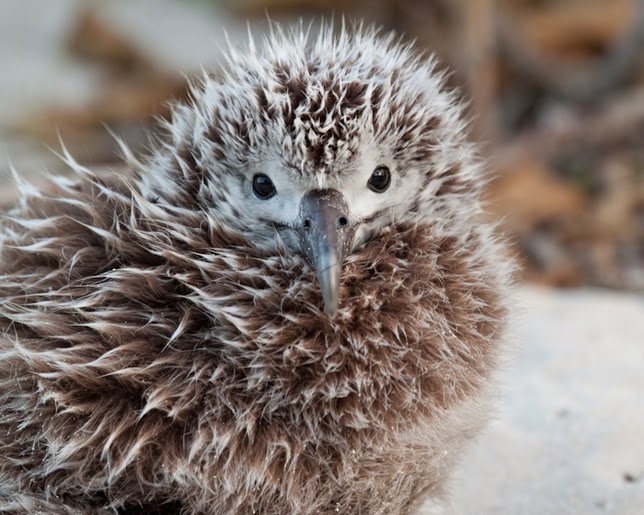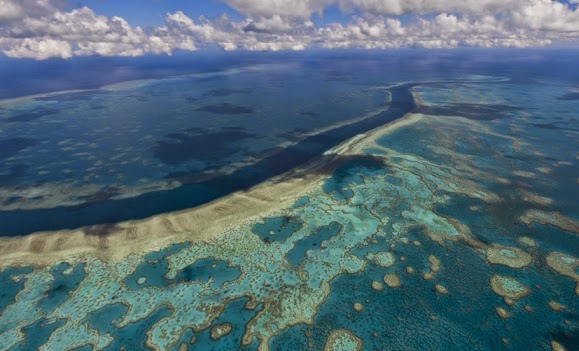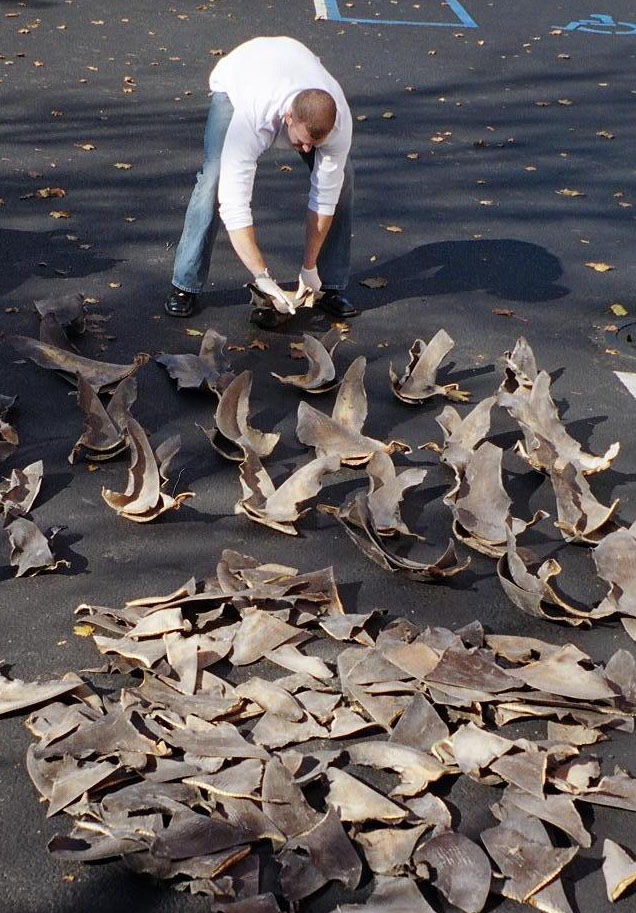The most comprehensive study to date on plastic in the oceans estimates that the oceans now contain more than 5 trillion pieces of plastic, collectively weighing nearly 270,000 tons. While large pieces like plastic bags and fishing lines can kill seabirds, seals, and turtles outright, most of these pieces are “micro plastics” measuring less than 5 mm, which are ingested by fish and move up the food chain. Chemicals in the plastics, along with the pollution they attract, cause damage to all species in the food chain – including humans. Read more…

5. Whale Numbers Increasing. Great News!
6. Future of Barrier Reef – Hot Topic; Scientists Divided
The United Nations Educational, Scientific and Cultural Organization (UNESCO) members convened to discuss ecosystem management in a gathering that occurs only once every ten years. The list of topics discussed was long, but perhaps the most controversial was the quality of the current management of the Great Barrier Reef (GBR). Once considered the crown jewel of marine protected areas, the GBR is experiencing degradation. Scientists do not agree on the extent of the damage, nor how the reef should be managed. Read more…
7. United Nations Conservation Conference Votes to Protect More Species
Thirty-one species of migratory animals, including polar bears, whales, sharks, rays, and gazelles, were granted protection status by the UN Conservation of Migratory Species of Wild Animals after intense negotiations in Quito, Ecuador. The list includes a record 21 species of sharks, rays, and sawfish. More than 900 experts from 120 countries were involved in the talks. Read more…
 |
———————————————–
11. Massachusetts Becomes Ninth State to Ban Possession, Sale of Shark Fins
Governor Deval Patrick signed a bill banning the possession and sale of shark fins in the state of Massachusetts. This makes nine states that have taken definitive action against this unsustainable practice.
Sea Save Foundation played a pivotal role in building momentum and support for the passage of California’s shark fin ban. In addition to California and Massachusetts, Oregon, Washington, Illinois, Maryland, New York and Delaware have enacted laws prohibiting the sale of shark fins and food containing the fins. This bill makes Massachusetts the ninth state to pass legislation criminalizing the shark fin trade. Violators will be fined between $500 and $1,000, as well as up to 60 days in jail.
American restaurants serving shark fins are just the tip of the problem. Tons of shark fins are shipped to Asia annually. This is a lucrative market, and the high-dollar value of the fins makes it difficult to curb the demand. Even so, we are beginning to see a shift in attitude and heightened awareness about this unsustainable practice.Read more…
Coral bleaching was particularly severe in the Pacific and Caribbean this past summer, possibly due to a brewing El Nino. The Hawaiian Islands experienced their worst bleaching on record. Bleaching occurs when corals lose their food-producing algae due to extended heat stress. The corals’ vibrant colors fade, and they become vulnerable to disease and starvation. With El Nino expected in 2015, many corals could be facing a significant threat. Read more…













